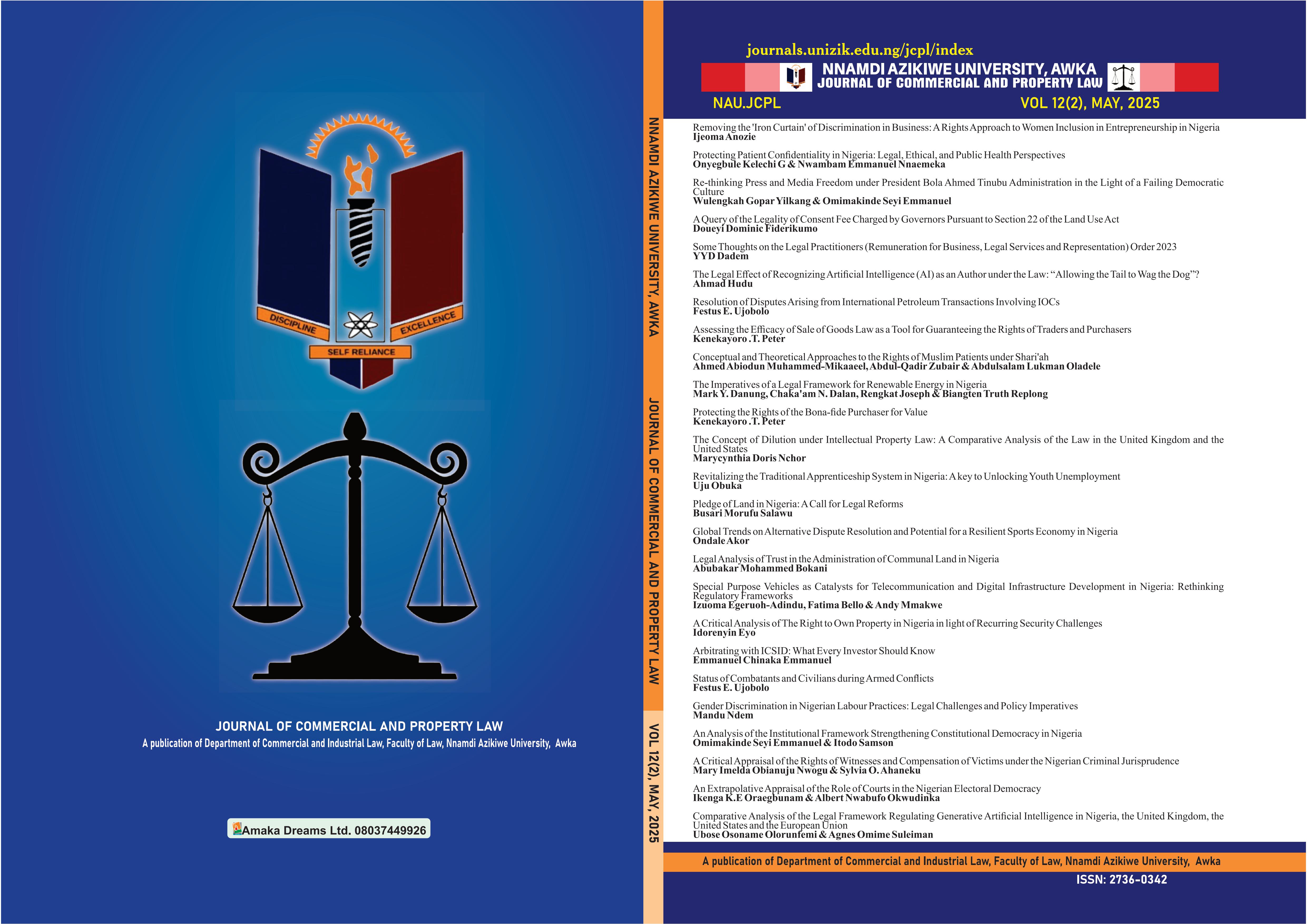A CRITICAL ANALYSIS OF THE RIGHT TO OWN PROPERTY IN NIGERIA IN LIGHT OF RECURRING SECURITY CHALLENGES
Keywords:
Property rights, insecurity, Nigeria, land tenure, human rights, legal protectionAbstract
This paper critically examines the right to own property in Nigeria within the context of persistent and escalating security challenges. Property rights, recognized under Nigerian law and international human rights frameworks, are fundamental to individual liberty, economic empowerment, and national development. However, ongoing threats such as terrorism, banditry, herder-farmer clashes, kidnapping, and communal violence have increasingly hindered the exercise and enjoyment of this right. This study explores the legal frameworks governing property ownership, evaluates how insecurity affects property utility and profitability, and analyzes the implications on vulnerable groups, particularly farmers, women, and children. It further investigates the response of both government and private individuals, including the costs and sustainability of these measures. The methodology combines doctrinal legal analysis with a qualitative review of secondary data, including legislation, case law, scholarly articles, and reports from governmental and non-governmental sources. The findings reveal that the failure of security systems has led to widespread displacement, loss of livelihood, and weakened property rights enforcement. In response, affected individuals and communities have adopted private security measures, which often lack sustainability and legal oversight. Government interventions remain fragmented and reactive. The paper concludes with practical recommendations for safeguarding property rights in Nigeria, with a focus on enhancing security architecture, policy reforms, and stakeholder collaboration.

